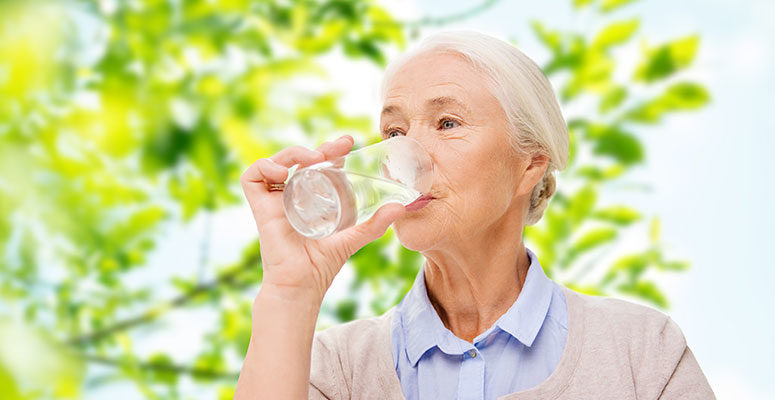
Why Hydration is So Important as You Age
As the body grows older, the awareness of thirst starts to recess. For many who have reached their golden year, the need for consuming more water grows, but the mechanisms for indicating thirst are not as strong. Understanding why hydration is important will help establish a daily routine that can make up for the lack of communication between the body and mind.
Improve Overall Health
There have been several studies which show the importance of consuming water on a daily basis as we age. With cognitive abilities slowing down, the effects of mild dehydration can be detrimental to the functioning of the mind.
In addition, there is also the benefit to the rest of the body as movement, stretching, and conducting daily exercise becomes easier when fully hydrated. Such physical improvements include the following:
- Lower heart rate
- Improve endurance
- Hasten recovery process
But there are more than just physical improvements you can experience when ensuring that the body gets the water it needs as you age.
Bolster Immune System: Because appetite and activity levels decreases the more we age, the risk of contracting diseases, viruses, and infections grows stronger. By increasing the water intake to recommended levels, the immune system is better able to fight off colds, flu, germs, and bacteria.
Improve Mood: Although it seems that mood improvement is subjective, studies have shown that people who drink the recommended amount of water each day are happier and have an improved wellbeing.
How Much Water to Drink?
The recommended amounts of water consumption have been a sore spot for many since it seems to be too much. However, it is generally best to gradually increase the amount of water that is consumed as you grow older.
Start by evaluating how much water you drink. From there, you have a baseline from which to begin. If you find that you do not drink anywhere close to the recommended amount, then you can add water for the following:
- One glass for each meal
- One glass before and after working out
- One glass in the evening
You can start with a small glass or bottle of water and work your way up as your need grows. However, you can augment this approach:
- Add unsweet tea or non-sugar soft drinks
- Add fruits and vegetables, such as watermelon, tomatoes, and cucumbers
By adding additional sources of water to your daily meals and snacks, you can improve the hydration of the body naturally over time. This allows you to address any shortcomings and prevent dehydration from occurring. The creation of routines will help offset the lessening of sensitivity when it comes to thirst.
Now you know why hydration is so important, you need to establish a daily routine of consuming water even if you do not feel thirsty. This is particularly true if you exercise or live in hot conditions. The better you can address your body’s need for water, the better able you are to stay alert and healthy.
Contact Blue Parasol Home Care for more information. Please reach out to us directly at 718-349-1905 or info@blueparasol.org.
